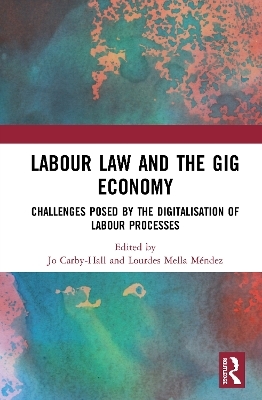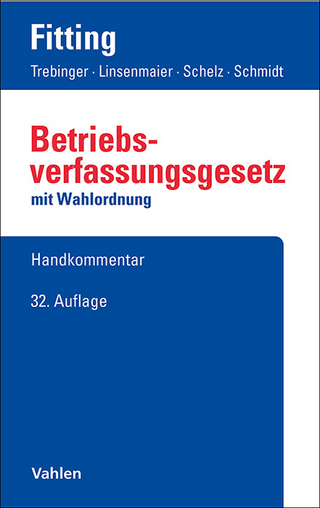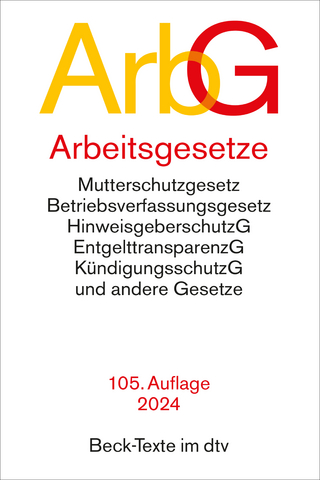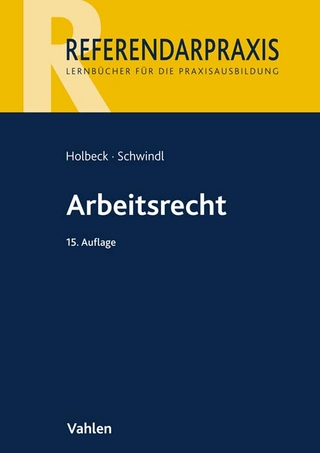
Labour Law and the Gig Economy
Routledge (Verlag)
978-0-367-46248-2 (ISBN)
The rapid progress of modern disruptive technologies and AIs and their multiple applications to each phase of the labour production system, are changing the production rules on a global scale with significant impacts in every aspect of work. As new technologies transform work patterns and change the type of jobs available - destroying some while creating others - and even the nature of the tasks performed, numerous legal problems arise which are challenging to legislators and legal scholars who need to find appropriate solutions to them. Considering the labour law issues which have been created by technological developments and currently affect the work of millions worldwide, this book highlights the full scope of these issues, suggesting solutions to emerging problems and ways to mitigate the risks brought about through technological advancement.
Approaching the present debate with perspectives on legal problems with expertise from a wide range of different countries, this book presents informed and scholarly studies which answer the challenges that new technologies present in labour markets, private lives and labour processes.
Jo Carby-Hall is Professor of Law and Director of International Legal Research in the Centre for Legislative Studies at the University of Hull Lourdes Mella Mendez is Professor of Labour Law and Social Security at the University of Santiago de Compostela, Spain.
List of Contributors
Foreword by Professor The Lord Norton of Louth. University of Hull/House of Lords
An introduction about the challenges posed by digitalisation of labour markets by Lourdes Mella Méndez. University of Santiago de Compostela (Spain)
Part one. The impact of new technologies in the labour market
Chapter 1. The Taylor Review 2017-A Critical Appreciation on a Selection of its Legal Content
Jo Carby-Hall. University of Hull (United Kingdom)
Chapter 2. The 4th Industrial Revolution and its Impact on the Individual Employment Relationship: General Considerations and the Regulatory Context in Russia
Daria Chernyaeva. Higher School of Economics Moscow (Russia)
Chapter 3. Digitalisation vis-à-vis the Indian Labour Market: Pros and Cons
Durgambini A. Patel. Savitribai Phule Pune University (India)
Chapter 4. The Impact of New Technologies in the Current Labour Market of Selected Arab States
Alaa Eltamimi. Mansoura University (Egypt)
Chapter 5. Impacts of Social Networks in the Employment Environment. – From the Traditional Subjects to the Particular Case of Employment Non-Compete Clauses
Duarte Abrunhosa e Sousa. University of Porto (Portugal)
Chapter 6. Rebalancing Worker Rights and Property Rights in Digitalised Work
Julia Tomassetti. USA/City University of Hong Kong, School of Law (China)
Part two. The impact of new technologies in the employees’ private life
Chapter 7. Technological Innovation and its Impact on the Employment Contract: Special Reference to the Video Surveillance and the Intervention of Private Detectives
María Carmen López Aniorte, Francisco Miguel Ortiz González-Conde, Antonio Megías-Bas. University of Murcia (Spain)
Chapter 8. New Technologies and the Employee’s Right to Privacy
Arthur Rycak. Łazarski University (Poland)
Chapter 9. Work-life balance and Industry 4.0 in the Legal Framework of the European Union
Tania Ushakova. Belarusian State University (Minsk, Belarus)
Chapter 10. Digital Disconnection as a Limit to Corporate Control of Working Time
Sarai Rodríguez González. University of La Laguna (Spain)
Chapter 11. Right to Disconnect from the Workplace: Strengths and Weaknesses of the French Legal Framework
Lerouge Loïc. COMPTRASEC. CNRS-University of Bordeaux (France)
Part three. The impact of new technologies on the labour process
Chapter 12. The Digital Evidence in the Labour Process and the Fundamental Rights of the Employee
Lourdes Mella Méndez. University of Santiago de Compostela (Spain)
Chapter 13. The Probative Value and Effectiveness of the Evidence Obtained Through E-mail and Messaging in the Control of the Workplace Activity
Francisca Mª Ferrando García, Mª Monserrate Rodríguez Egio, Antonio Megías-Bas. University of Murcia (Spain)
| Erscheinungsdatum | 21.04.2020 |
|---|---|
| Zusatzinfo | 1 Illustrations, black and white |
| Verlagsort | London |
| Sprache | englisch |
| Maße | 156 x 234 mm |
| Gewicht | 544 g |
| Themenwelt | Recht / Steuern ► Allgemeines / Lexika |
| Recht / Steuern ► Arbeits- / Sozialrecht ► Arbeitsrecht | |
| Recht / Steuern ► Arbeits- / Sozialrecht ► Sozialrecht | |
| Recht / Steuern ► EU / Internationales Recht | |
| Sozialwissenschaften | |
| Wirtschaft ► Volkswirtschaftslehre ► Makroökonomie | |
| ISBN-10 | 0-367-46248-6 / 0367462486 |
| ISBN-13 | 978-0-367-46248-2 / 9780367462482 |
| Zustand | Neuware |
| Informationen gemäß Produktsicherheitsverordnung (GPSR) | |
| Haben Sie eine Frage zum Produkt? |
aus dem Bereich


